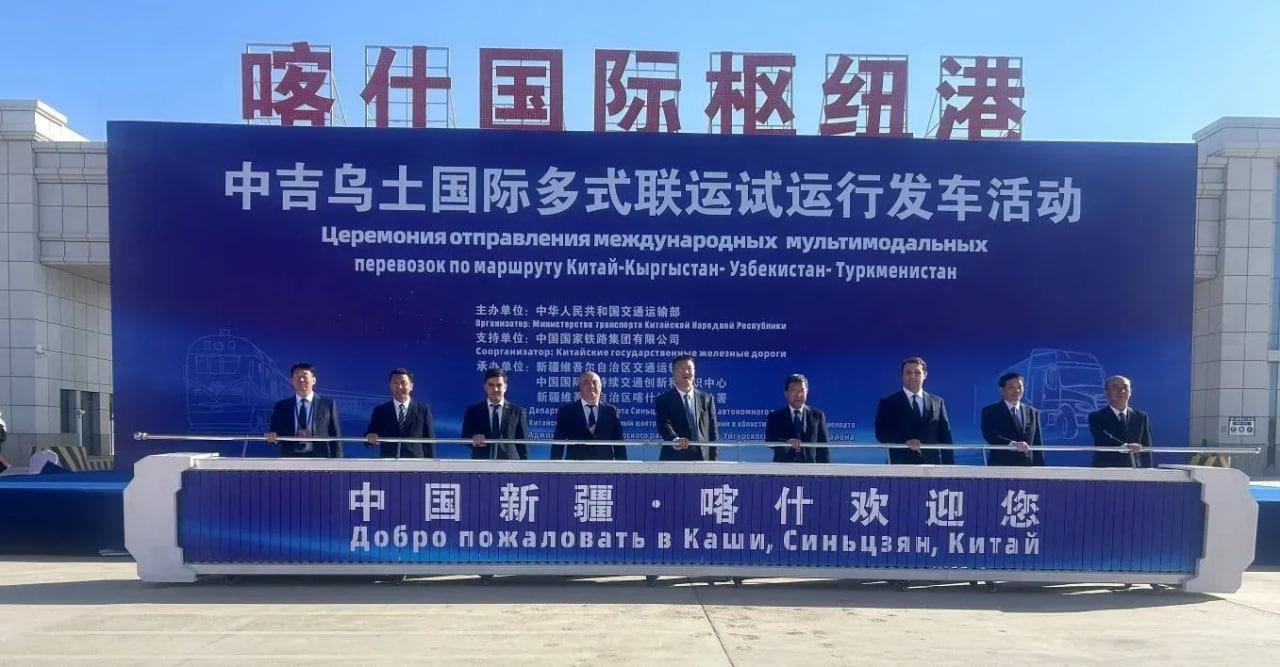Is Russia Paying Attention To Baku-ceyhan?
Is Russia Paying Attention To Baku-ceyhan?
As world oil prices climb to new heights, officials and experts in Moscow revise upwards their production plans and propose quick solutions for clearing the bottlenecks in oil export capacity. In this stream of optimistic commentary, one key channel for delivering the Caspian oil to the world markets is notably missing — the Baku-Tbilisi-Ceyhan (BTC) pipeline, that will carry oil from Azerbaijan to the Turkish Mediterranean port of Ceyhan. After a slow and tortured start, this project is moving quickly ahead and the first super-tanker is scheduled to fill in about a year. Moscow has long since lifted its objections against this “unfriendly” pipeline. However, Moscow does not intend to prevail over the BTC pipeline in “honest” competition.
Moscow sees opportunity in the fact that without oil from Kazakhstan and Russia, the BTC cannot be filled even to half-capacity. Azerbaijan does not have enough reserves of its own, and new drilling has not been encouraging. Moreover, Baku’s ability to develop new offshore fields in the Caspian is hampered by the unresolved maritime border dispute with Iran and Turkmenistan. Also, Azerbaijan is bound by contractual obligations to continue exporting fixed volumes of oil through the Georgian port of Poti and through Novorossiisk.
Russian President Vladimir Putin’s recent address to Parliament was, in the opinion of many observers, short on both big ideas and practical matters. But he did take the trouble to mention one pipeline project by name — a new route bypassing the Bosporus straits — thereby easing the limits on Russian tankers shipping oil from the Black Sea port of Novorossiisk. This idea has been debated for years but was found too questionable to merit mention in the Russian Energy Strategy, approved last August. But Semyon Vainshtok, president of state-owned Transneft, the company that controls the Russian oil pipeline system, has picked up Putin’s comment. Vainshtok talked about this project at the third international pipeline forum in Moscow in early June, without going into detail due to “possible pressure from Turkey.”
New restrictions on night passage of tankers through the Bosporus, introduced in 2002, caused delays of up to three weeks this winter. Turkey has its own plan to relieve the pressure by building an additional pipeline from Samsun on the Black Sea down to Ceyhan on Turkey’s southern coast. But this project is unlikely to proceed while BTC is below full capacity. For several years there has been interest in building new pipelines across the Balkans. The US government has funded feasibility studies for a pipeline from Burgas in Bulgaria to Vlore in Albania, while Russia favors a line linking Burgas with the Greek port of Alexandroupolis. However, doubts about the economic viability of these projects in the absence of firm commitments of oil deliveries have prevented them from moving forward.
Putin’s stern reminder: “A solution to this question is now overdue, to put it bluntly,” betrays the urge to keep Russia ahead in this race of pipelines. In fact, Russia’s “answer” to BTC took shape as early as summer 2001 when the Caspian Pipeline Consortium pipeline was inaugurated, bringing crude to Novorossiisk from the Kazakh field of Tengiz. A second parallel line has now been commissioned. Moscow also wants to make sure that several alternative exits from the Black Sea are available for this oil. Another possibility is to channel more oil north to the new terminal in Primorsk. So expanding the Baltic pipeline system is also a priority.
Technical capacity is by no means the decisive factor for winning the race. Moscow is investing massive political capital into lobbying in Kazakhstan in an effort to persuade the Kazaks to use Russian transit routes rather than commit oil to the Baku-Ceyhan pipeline. Tactics include trying to play Prime Minister Danial Akhmetov against Timur Kulibaev, president of the state oil company. Russia has also expressed renewed interest in cooperating with Iran. In late April a new pipeline became operational, connecting the Iranian port of Neka on the Caspian with a refinery near Tehran. Initial annual capacity of the pipeline is 8.5 million tons, which can be increased to 25 million tons. Under swap arrangements, Russian or Kazakh oil bought by Iran could be refined for domestic use while an equivalent amount of crude is shipped by tanker from Iranian terminals in the Gulf.
Overall, Russia is executing its strategic game plan with remarkable consistency and composure, avoiding cheap hysterics and military muscle-flexing. Having failed to prevent the construction of Baku-Ceyhan, it now seems set on undermining its economic viability and turning it into a thousand-mile long “white elephant.”


